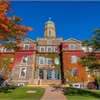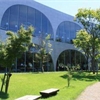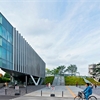Study in Australia: Ten common questions and ten answers before going 4017
 Rieter University,The first batch of overseas study institutions certified by the Ministry of Education,Accredited by the world's top ICEF Education Exhibiting Organization (Screened Agency),Member of the National Overseas Study Agency Service Alliance (COSSA),Member of Beijing Overseas Study Service Industry Association (BOSSA),China Education Association for International Exchange self-funded study abroad intermediary service branch director unit,More than 10 years of experience in overseas study and immigration services,We have helped thousands of students achieve their dreams of studying abroad and finding jobs。
Rieter University,The first batch of overseas study institutions certified by the Ministry of Education,Accredited by the world's top ICEF Education Exhibiting Organization (Screened Agency),Member of the National Overseas Study Agency Service Alliance (COSSA),Member of Beijing Overseas Study Service Industry Association (BOSSA),China Education Association for International Exchange self-funded study abroad intermediary service branch director unit,More than 10 years of experience in overseas study and immigration services,We have helped thousands of students achieve their dreams of studying abroad and finding jobs。
If you have any questions about studying abroad and working abroad, please call us 022-2328-9071/9075
1.What's the climate like in Australia?
Australia is located in the southern hemisphere, and the seasons are the opposite of our country, where December to February is summer, March to May is autumn, June to August is winter, and September to November is spring。The temperature difference between the four seasons in Australia is not very large, the summer is generally 25 to 30 degrees, and the winter is 10 to 20 degrees. Most cities in Australia are concentrated in the seaside, even in summer, because of the role of sea breeze, it is relatively cool here。
2.What are the things you need to bring before you go to Australia?
Bring original or photocopies of all important documents, such as passports, visas, traveler's checks, airline tickets, credit cards, student registration confirmations, insurance documents。It's best to keep a copy for your family, too, in case you need it。
3.What are the common accommodation types in Australia?
First, the residential family, that is, the child lives in an Australian family, the student can live in a single room, the rent usually includes meals, but there are not included。
Second, school dormitories, most universities or colleges offer a variety of accommodation located on or near the school, such as apartment apartments, residentialcolleges, or student housing hallsofresidence。Costs also vary。
Third, rent. Students can rent by themselves or share a room with other students。Students can find information from their school, fellow students, estate agents, local newspapers and local rental websites。
4.Can Chinese mobile phones work in Australia?
Most mobile phones sold in China can be used in Australia。After arriving in Australia, you can buy local cards and put them into your mobile phone, the more common ones are optus and vodafone, and then choose different packages according to your own situation, with different charges。Optus has a pre-paid card, which has no documents, no formalities, and is purchased immediately。Go to any optus store, or postoffice, or any place authorized by optus to sell cards, and ask the clerk for a newnumberof Optus pre-paid.The clerk will give you a SIM card, either already with the number, or you'll need to call optus customer service or go to the optus website to get a number and activate it
5.What are the best places to visit in Australia?
Australia itself is a tourist destination, with many tourist attractions, such as Queensland has Cairns Great Barrier Reef, Brisbane's South Bank Park, Gold Coast Dreamworld, Mountain Dew World, Movie World and other theme parks。Wollongong Waterjet Cave in New South Wales, Hunter Valley Winery, the Three Sisters of the Blue Mountains in Sydney, the Harbour Bridge in downtown Sydney, and the Sydney Opera House。Victoria has the Ballarat gold fields, the Great Ocean Road, Penguin Island and so on。Every place has its own character。
6.What are the main modes of transport in Australia?
Whether you travel between urban areas or across the country, Australia has a variety of transport options, such as buses, ferries, urban light rail, monorail, trains, trams, taxis, and planes。Australia's public transport systems are safe and inexpensive, and in some cases, some are even free to use。In some states, overseas students can enjoy a discount on transportation fares, and you can check with the university。
7.What is Overseas Student Medical Insurance?
Australia has designed for overseas students to medical insurance system, called overseas student health insurance (overseasstudenthealthcover, OSHC)。According to the regulations of the Australian Immigration Department, students with student visas are required to purchase OSHC during their study in Australia。OSHC helps students pay for medical and hospital expenses while studying in Australia, and subsidises most of the costs of prescription drugs and emergency ambulance services。
8.What are the opening hours of service agencies in Australia?
Shopping: Australia's capital cities and major towns have world-class shopping places, opening hours are usually 9am to 5pm, Thursday or Friday late to 9pm, some supermarkets open 24 hours, large supermarkets such as Coles and Woolworths basically open until 9pm every day
Banks: Many banks in Australia are generally open Monday to Thursday from 9.30am to 4pm, Friday from 9.30am to 5pm, and all banks will be closed on Sundays and public holidays。
Post Office: Most post offices are open Monday to Friday from 9 a.m. to 5 p.m. Post offices can also sell stationery, mail packages, calling cards and stamps and pay electricity, telephone bills and other bills。
9.What are the important telephone numbers in Australia?
Emergency services 000(Police, fire, ambulance)
Visa affairs 131881
International Call 0011(Country code)(City code)(Phone number)
Australia country code 61
10.Can you work in Australia?
The Australian Immigration Department allows full-time students to work up to 20 hours a week while studying,After arriving in Australia, students can go to the Department of Immigration and fill out a work permit application form,Pay the appropriate application fee,Apply for a local Australian tax ID at your local tax office,Generally 1 to 2 weeks, the tax bureau will send the student's tax ID to the address you fill in。So students can work legally。














